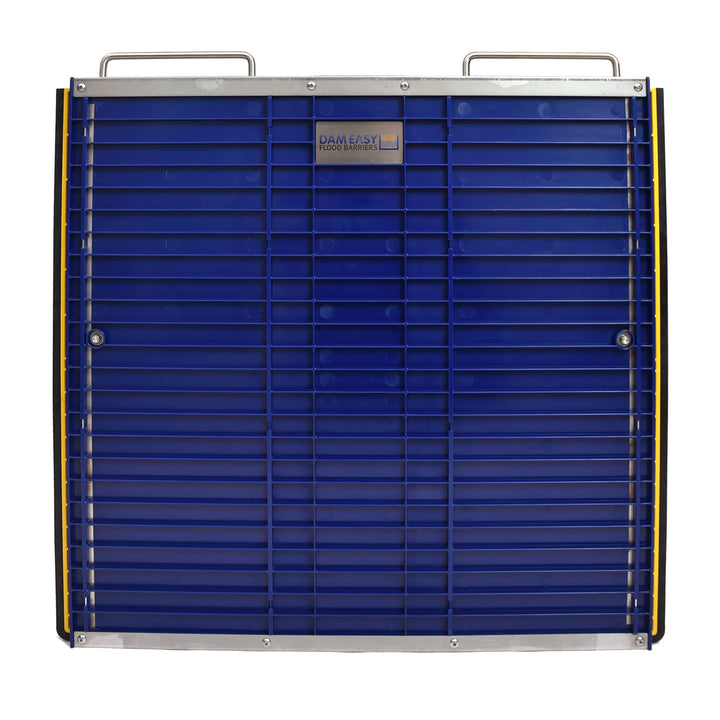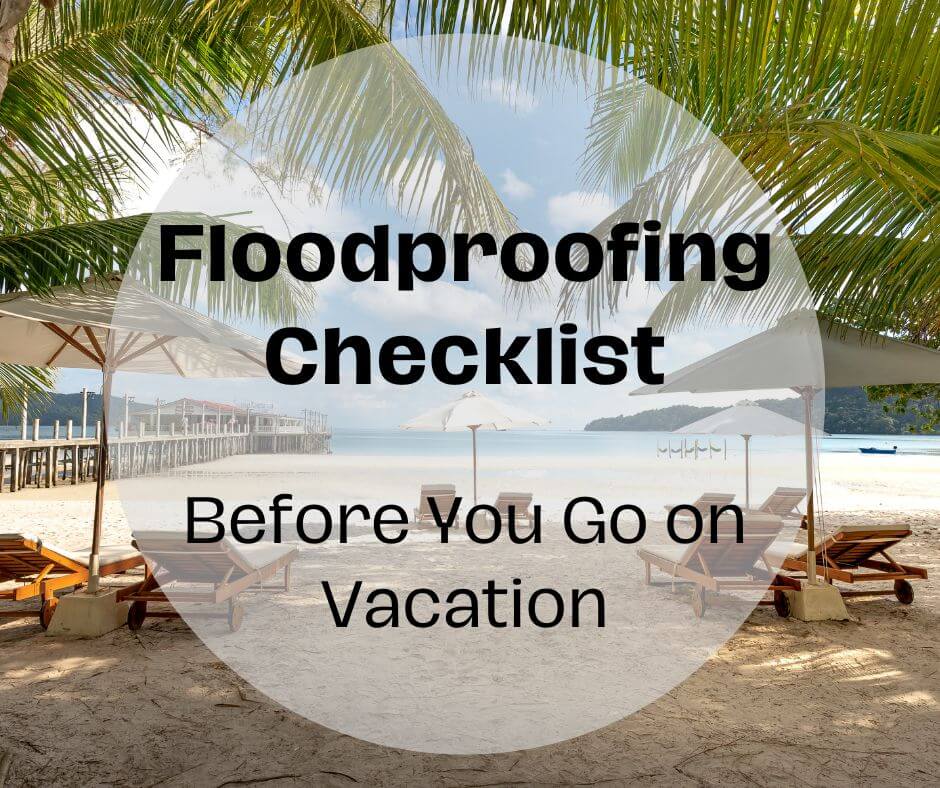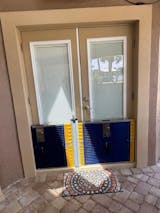Taking a vacation is supposed to be a time to relax and unwind, but nothing can ruin a getaway faster than worrying about your home getting flooded. Whether it's a sudden downpour, a nearby river rising, or a hurricane headed your way, flooding can cause significant damage to your property.
The good news is, with a little preparation, you can safeguard your home while you're off enjoying your break.
So, today let's talk about how to make sure that your house stays dry and secure while you are on vacation.
What are the Odds?
Here are some general flooding statistics that will probably help you estimate the risks of becoming a victim of floods while you are away.
-
- In the U.S., floods are the most common natural disaster, with all 50 states experiencing floods or flash floods at some point.
- According to FEMA, flooding is the leading cause of disaster-related property damage.
- About 14.6 million properties are at risk of flooding across the U.S., based on data from the First Street Foundation.
- The probability of flooding while homeowners are on vacation may increase during certain times of the year, such as hurricane season (June to November) in coastal areas and springtime in areas prone to heavy rainfall and snowmelt.
Potential Damage from Flooding
Costs:
-
- On average, a single inch of water in a home can cause approximately $25,000 in damage.
- Flooding can lead to costly repairs, including replacing flooring, drywall, electrical systems, and appliances.
Damage:
-
- Floodwaters can weaken the foundation of a house, warp floors and walls, and lead to long-term structural issues if not addressed promptly.
Mold growth is a significant concern post-flooding, which can further deteriorate building materials and pose health risks.
-
- Water damage can ruin furniture, electronics, clothing, and other personal items, many of which may be irreplaceable or hold sentimental value.
Health Risks:
-
- Standing water and moisture can lead to mold and mildew, which can cause respiratory problems and other health issues.
- Contaminated floodwater can introduce harmful bacteria and pathogens into the home environment.
Now that we have discussed what and how you can get damaged by floodwater while you are chilling on vacation, it is easier to understand how to make sure that the damage is minimal or prevent it entirely.
Check Your Gutters and Downspouts
Let's get started. Before you even plan your vacation, make sure your house is prepared. Start by making sure your gutters and downspouts are clear of debris. Clogged gutters can lead to water overflowing and pooling around your home's foundation, which can cause leaks and basement flooding. Clean out leaves, twigs, and any other obstructions. Make sure your downspouts direct water at least three to four feet away from your house.
Inspect Your Roof
A leaky roof can be a major culprit for water damage. Stains and wall damage is not something you expect to see as soon as you are back from vacation. Before you leave, take the time to inspect your roof for missing or damaged shingles. Look for signs of wear and tear, and address any issues immediately. If you're not comfortable doing this yourself, hire a professional to give your roof a thorough check-up.
Install Flood Barriers
One of the most effective ways to protect your property from flooding is to install flood barriers. These barriers are designed to keep water out of your home during severe weather events. The best part? They’re quick and easy to set up, often taking just a few minutes. Simply place them at entry points like doors, windows, and garage openings. Flood barriers can be a lifesaver, giving you peace of mind that your home is protected even if a hurricane or heavy rains hit while you’re away.
$899.99
大坝容易®防洪闸门大坝
洪水在世界各地越来越普遍。曾经的百年现象,现在是房主必须面对的季节性趋势。
这正是为什么你需要这个大坝容易防洪闸门大坝!
作为重型和凌乱沙袋的一个很好的替代品,这个屏障提供了第一道防线,防止水进入你家的门窗。当洪水发生时,快速行动的能力至关重要。此防洪屏障可在 5 分钟内安装,为您提供可靠的防洪保护!
不要等到为时已晚。得到这个防洪屏障门坝,现在保护你的房子!
… Read MoreDamEasy防洪闸门坝 -终极防洪

Elevate Electrical Appliances
Water and electricity don’t mix. If you have electrical appliances or outlets in your basement or other flood-prone areas, consider elevating them. Place appliances like washers, dryers, and water heaters on sturdy platforms to keep them above potential flood levels. For extra safety, you can also install flood sensors that alert you if water starts to accumulate.
Seal Cracks and Openings
Take a walk around your home and inspect the foundation, windows, and doors for any cracks or gaps. Even small openings can let water seep in. Use a high-quality sealant to close up any cracks you find. For windows and doors, consider adding weather stripping to create a tight seal.
Sump Pump Check
If you have a sump pump, now’s the time to make sure it’s in good working condition. Test it by pouring water into the sump pit and ensure it activates and pumps water away from your home. Consider installing a battery backup system in case of a power outage, so your sump pump can continue to protect your basement from flooding.
Secure Outdoor Furniture and Equipment
Loose items in your yard can become dangerous projectiles in high winds and can clog drainage paths. Secure outdoor furniture, grills, and any other equipment. Store smaller items like garden tools and toys in a shed or garage.
Plan for Emergency Contacts
Leave a list of emergency contacts with a trusted neighbor or friend. This list should include your contact information, local emergency services, and any contractors you might need in case of flooding or other issues.
Turn Off the Water Supply
Before you head out, turn off the water supply to your home to prevent potential leaks while you're away. If a pipe bursts, it can cause extensive water damage, and turning off the water supply is a simple way to avoid this risk.
Double-Check Insurance Coverage
Finally, review your homeowners’ insurance policy to make sure you have adequate flood coverage. Standard policies often don’t cover flooding, so you might need to purchase additional flood insurance. It’s better to be prepared and know that you’re covered in case the unexpected happens.
Conclusion
Flooding can wreak havoc on your home, especially when you’re off enjoying a well-deserved vacation. By ticking off the items on this checklist, you’ll be doing a lot to keep your property safe and dry. Remember, a little bit of prep now can save you from a whole lot of trouble later.
For expert advice and the best flood protection solutions, reach out to Dam Easy. We’re here to offer thorough consultations, share essential flood safety tips, and provide top-of-the-line flood barriers that’ll keep your home secure. Don’t leave your house vulnerable while you’re away—give Dam Easy a call today and relax knowing you’ve got the best protection in place.




















